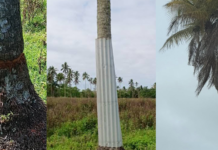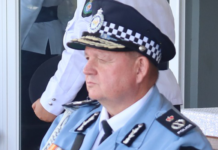Prominent Tongan academics have joined a growing chorus of criticism against the Trump administration’s abrupt suspension of student visa processing, warning that the move undermines global education and fosters division.
Professor Tevita ‘O Ka’ili, a respected scholar at Hawai’i’s BYU university, expressed deep concern over the policy shift, which has ordered U.S. embassies worldwide to halt visa interviews for international students.
“I teach at a university where 56% of the students are international,” Ka’ili said.
He said the talanoa (discussions) and projects in his classes are enriched by diverse and insightful perspectives from students from Hawaiʻi, Oceania, the Asian Rim, the Continental U.S., and various other countries.
“It is unfortunate that the Trump administration has ordered all U.S. embassies worldwide to halt student visa interviews.”
His remarks were echoed by Professor Konai Helu Thaman, another renowned Tongan scholar, who called the decision “more than sad: it is downright dangerous.”
Responding on Facebook to Ka’ili’s post, Thaman reflected, “Humans learn at a young age to live together, to play together, and love one another. Then politics came along and demanded that difference should be the basis of governance—and eventually, life. We are seeing the worst manifestation of this change… everywhere.”
She urged Ka’ili to remain steadfast, adding, “Stay true to your calling; the truth will set us free.”
The policy, first reported by Politico and confirmed by The Guardian, stems from a State Department cable instructing consular offices to pause scheduling F, M, and J visa appointments pending new “expanded social media vetting” protocols.
The Guardian report said: “The new expansion would apply social media vetting to all student visa applicants, not just those flagged for activism. Under the screening process, consular officers would examine applicants’ posts, shares, and comments across platforms such as Instagram, X and TikTok for content they deem to be threatening to national security, which has since been tied in to the Trump administration’s stance on combating antisemitism.”
The move could disrupt enrollment for thousands of international students and deal a financial blow to U.S. universities, many of which rely heavily on foreign tuition revenue.
Critics argue the suspension aligns with Trump’s broader scepticism toward immigration and higher education, which he has accused of promoting “far-left ideologies.”
However, scholars like Ka’ili and Thaman warn that restricting academic exchange weakens intellectual diversity and global cooperation at a time when unity is needed most.







